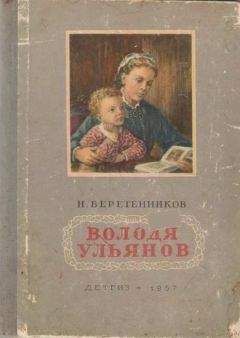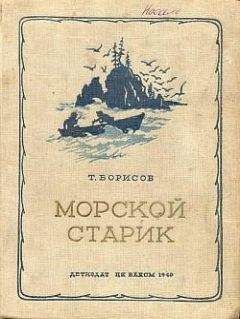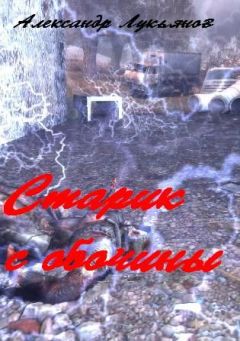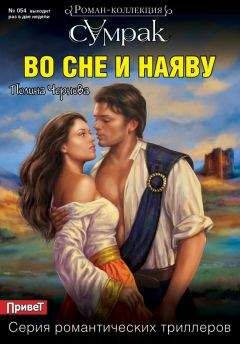Dodie Smith - I Capture the Castle
There was an entrance floor, a chamber above it and a dungeon below
--here, where we are."
"I bet they enjoyed sitting feasting while the prisoners clanked in chains below."
I told him they probably feasted somewhere else-there must have been
much more of Belmotte Castle once, though no other traces remain: "Most likely this was mainly a watch tower. Mind you don't bump into the
bedstead."
The bedstead was there when we first came--a double one, rather fancy, now a mass of rusty iron. Father meant to have it moved but when he
saw it with the cow-parsley growing through it, stretching up to the
light, he took a fancy to it. Rose and I found it useful to sit
on--Mother was always complaining because our white knickers got marked with rust rings from its spirals.
"It's pure Surrealist," said Simon, laughing.
"I can never understand why there are so many derelict iron bedsteads lying about in the country."
I said it was probably because they last so long, while other rubbish just molders away.
"What a logical girl you are--I could never have worked that out." He was silent for a moment, staring up into the dim heights of the tower.
A late bird flew across the circle of stars and fluttered down to its nest in a high arrow-slit.
"Can you get it--the feeling of people actually having lived here ?" he said at last.
I knew just what he meant.
"I used to try to, but they always seemed like figures in tapestry, not human men and women. It's so far back. But it must mean something to
you that one of your ancestors built the tower. It's a pity the de
Godys name died out."
"I'd call my eldest son "Etienne de Godys Cotton," if I thought he could get by with it in England--would you say he could his It'd
certainly slay any American child."
I said I feared it would slay any child in any country. Then Heloise
appeared above us in the doorway, which reminded us to go on with our job of getting wood.
I dragged it out from under the rustic table and handed each branch to Simon, who stood half-way up the ladder- the technique Rose and I
always used came back to me. When I climbed the ladder at last, Simon helped me out and said: "Look-there's magic for you."
The mist from the moat was rolling right up Belmotte;
already the lower slopes were veiled.
I said: "It's like the night when we saw the Shape."
"The what ?"
I told him about it as we carried the branches to the fire: "It
happened the third year we held the rites, after a very hot, windless day like today. As the mist came towards us, it suddenly formed into a giant shape as high as--oh, higher than--the tower. It hung there
between us and the castle; it seemed to be falling forward over us--I never felt such terror in my life.
And the queer thing was that neither of us tried to run away; we
screamed and flung our selves face downwards before it. It was an
elemental, of course- I'd been saying a spell to raise one."
He laughed and said it must have been some freak of the mist:
"You poor kids! What happened then?"
"I prayed to God to take it away and He very obligingly did-Rose was brave enough to look up after a minute or two and it had vanished. I
felt rather sorry for it afterwards; I daresay no one had summoned it since the Ancient Britons."
Simon laughed again, then looked at me curiously: "You don't, by any chance, still believe it was an elemental ?"
Do I his I only know that just then I happened to look down towards the oncoming mist-its first rolling rush was over and it was creeping
thinly--and suddenly the memory of that colossal shape came back so
terrifyingly that I very nearly screamed. I managed a feeble laugh
instead and began to throw wood on the fire so that I could let the
subject drop.
Rose believed it was an elemental, too--and she was nearly fourteen
then and far from fanciful.
When the fire was blazing high again I felt we had better get the rites over. My self-consciousness about them had come back a little so I
was as matter-of-fact as possible; I must say leaving out the verses
made things rather dull. We burnt the salt and the herbs (in America
it is correct to drop the h in herbs-it does sound odd) and shared the cake with Heloise; Simon only had a very small piece because he was
full of dinner. Then we drank the Vicar's port--there was only one
wineglass so Simon had his out of the medicine bottle, which he said
added very interesting overtones; and then we made our libations, with an extra one for Rose. I hoped we could leave things at that, but
Simon firmly reminded me about dancing round the fire. In the end, we just ran round seven times, with Heloise after us, barking madly. It
was the smallest bit as if Simon were playing with the children, but I know he didn't mean it, and he was so very kind that I felt I had to
pretend I was enjoying myself--I even managed a few wild leaps.
Topaz is the girl for leaping; last year she nearly shook the mound.
"What now ?" asked Simon when we flopped down at last.
"Don't we sacrifice Heloise?" At the moment, she was trying to give us tremendous washings, delighted to have caught us after her long chase.
I said:
"If we drove her across the embers it would cure her of murrain, but she doesn't happen to have it. There's nothing more, except that I
usually sit still while the flames die down and try to think myself
back into the past."
Of course that was very much in Simon's line, but we didn't get very
far into the past because we kept talking. One thing he said was that he would never get used to the miracle of the long English twilight.
It had never before struck me that we have long twilights Americans do seem to say things which make the English notice England.
A carpet of mist had crept to within a few feet of us, then crept no
further- Simon said I must be putting a spell on it. Down by the moat it had mounted so high that only the castle towers rose clear of it.
The fire died quickly, soon there was nothing but gray smoke drifting in the gray dusk. I asked Simon if we were seeing by the last of the
daylight or the first of the moonlight- and really it was hard to tell.
Then gradually the moonlight won and the mist shrouding the castle
turned silver.
"Could anyone paint that?" said Simon.
"Debussy could have done it in music. Are you fond of him ?"
I had to admit that I'd never heard a note of Debussy.
"Oh, surely you must have. Not on records or the radio?"
When I told him we had neither a gramophone nor a wireless he looked
staggered- I suppose Americans find it hard to believe there is anyone in the world without such things.
He told me they had a new machine at Scoatney that changed its own
records- I thought he was joking till he began to explain how it
worked. He finished by saying: "But why don't I drive you over to hear it now his We'll have some supper."
"But you said you were full of dinner," I reminded him.
"Well, I'll talk to you while you eat. And Heloise can have a bone in the kitchen. Look at her trying to rub the dew off her nose with her
paws! Come on, this grass is getting very damp." He pulled me to my feet.
I was glad to accept because I was fabulously hungry. Simon stamped
out the dying embers while I went up to close the door of the tower. I stood at the top of the steps for a moment, trying to capture the
feelings I usually have on Midsummer Eve--for I had been too occupied in entertaining Simon to think about them before. And suddenly I knew that I had been right in fearing this might be my last year for the
rites--that if I ever held them again I should be "playing with the children:" I only felt the smallest pang of sadness, because the glory of supper at Scoatney was stretching ahead of me; but I said to myself that, Simon or no Simon, I was going to give the farewell calla
farewell for ever this time, not just for a year. The call is a queer wordless cry made up of all the vowel sounds--it was thrilling when
Rose and I used to make it together, but I do it fairly well by
myself.
"Ayieou!" I called-and it echoed back from the castle walls as I knew it would. Then Heloise raised her head and howled- and that echoed,
too. Simon was fascinated; he said it was the best moment of the
rites.
Walking down Belmotte was the oddest sensation--every step took us
deeper into the mist until at last it closed over our heads. It was
like being drowned in the ghost of water.
"You'd better get a coat," said Simon as we crossed the bridge to the courtyard, "because the car's open. I'll wait for you in it."
I ran upstairs to wash my hands; they were dirty from handling the
wood. And I put some of the "Midsummer Eve" scent on my dress and handkerchief--it seemed just right for a supper party.
My garland was still fresh so I wore it outside my coat, but as I
hurried downstairs I decided it might look affected and it would
certainly be longing for a drink; so I dropped it into the moat as I
crossed the drawbridge.
It wasn't the usual Scoatney car but a new one, very long and low--so low that one feels one is going to bump one's behind on the road.
"I think it's a bit too spectacular," said Simon, "but Rose lost her heart to it."
The night was beautifully clear once we were well away from the castle-we looked back at it from the high part of the Godsend road and could only see a little hill of mist rising from the moonlit wheat fields.
"If you ask me, it's bewitched," said Simon.
"Maybe when I bring you back we shall find it's gone for keeps." The new car was fascinating to drive in. Our eyes were on a level with the steep banks below the hedges and every spear of grass stood out
brilliantly green in the headlights, seeming more alive than even in
the brightest sunshine. We had to go very slowly because of rabbits-
Heloise kept trying to go headfirst through the windscreen after them.
One poor creature ran in front of us for such a long time that Simon
finally stopped the car and turned the headlights off, so that it could summon up the strength of mind to dive into a ditch. While we waited
he lit a cigarette, and then we leaned back looking up at the stars and talking about astronomy, and space going on for ever and ever and how very worrying that is.
"And of course there's eternity," I began- then Godsend church struck ten and Simon said we must make up for lost time.
There were very few lights on at Scoatney -- I suddenly wondered if all the servants would be in bed; but the butler came out to meet us. How extraordinary it must be to be able to tell a large, imposing man
"Just bring a tray of supper for Miss Mortmain to the pavilion, will you ?"-without even apologizing for giving trouble so late at night- I apologized myself, and the butler said:
"Not at all, miss," but rather distantly. As he stalked away after Heloise (she knows her way to the kitchen now) it struck me that he
would soon be Rose's butler. I wondered if she would ever get used to him.
We crossed the dim hall and went out at the back of the house.
"Here are your herbs by moonlight," said Simon, "and did you notice how carefully I put my aitch in?"
He led the way through the rather dull little herb-garden- the idea of herbs is so much more exciting than the look of them--into the
water-garden, and turned on the fountains in the middle of the big oval pool.
We sat on a stone bench watching them for a few minutes, then went into the pavilion. Simon only lit one candle- I'll put it out when I start the phonograph," he said.
"Then you can still see the fountains while you listen to Debussy--they go well together."
I sat down by one of the three tall, arched windows and peered around; I hadn't been in the pavilion since it had been turned into a music
room. A large grand piano had arrived as well as the wonderful
gramophone, and dozens of albums of records were arranged on the
shelves of two painted cupboards. Simon walked along with the candle, looking for the Debussy albums.
"I suppose we ought to start you right at the beginning," he said, "but I don't believe we have anything from "The Children's Corner."
I'll try "Clair de Lune" on you- and I bet you'll find you know it."
He was right--as soon as it began I remembered; a girl once played it at a school concert. It is beautiful-and the gramophone was amazing,
it might have been someone really playing the piano, only much better than I ever heard a piano played. Then the record changed all by
itself--Simon called me away from the window to watch it, and told me about the next piece, "La Cathedrale Engloutie." You hear the drowned cathedral rise with its bells ringing, then sink into the sea again.
"Now you know why I said Debussy could have composed the castle in the mist," Simon told me.
The third record was "La Terrasse des Audiences au Clair de Lune." It was wonderful to watch the fountains while I listened to it --there
were fountains in the music, too.
"Well, Debussy's certainly made a hit with you," said Simon, "though I'm not sure you wouldn't outgrow him. You're the kind of child who
might develop a passion for Bach."
I told him I hadn't at school. The one Bach piece I learnt made me
feel I was being repeatedly hit on the head with a teaspoon. But I
never got very far with my music--the money for lessons ran out when I was twelve.
"I'll find you some Bach that you'll like," said Simon. He lit the candle again and began to hunt through a big album. The gramophone had stopped playing. I went over to the cupboards and looked at the backs of the albums--even to read the names of the composers was exciting.
"You shall hear them all in time," Simon told me.
"I'd like to try some really modern stuff on you. What a pity Rose doesn't like music."
I turned to him in astonishment.
"But she does!
She plays much better than I do- she sings, too."
"All the same, she doesn't really like it," he said firmly.
"I took her to a concert and she looked quite wretched with boredom.
Ah, here's your supper."
It came on a silver tray, and the butler spread a lace cloth on a
little table for it. There was jellied soup, cold chicken (all
breast), fruit and wine--and lemonade in case I didn't like the wine
but I did.
Simon told the butler to light all the candles and he went round to the crystal wall-brackets with a taper in a long holder- it made me feel I was back in the eighteenth century.
"I'm determined not to have electricity in here," said Simon.
When the butler had poured out wine for us both, Simon told him he




